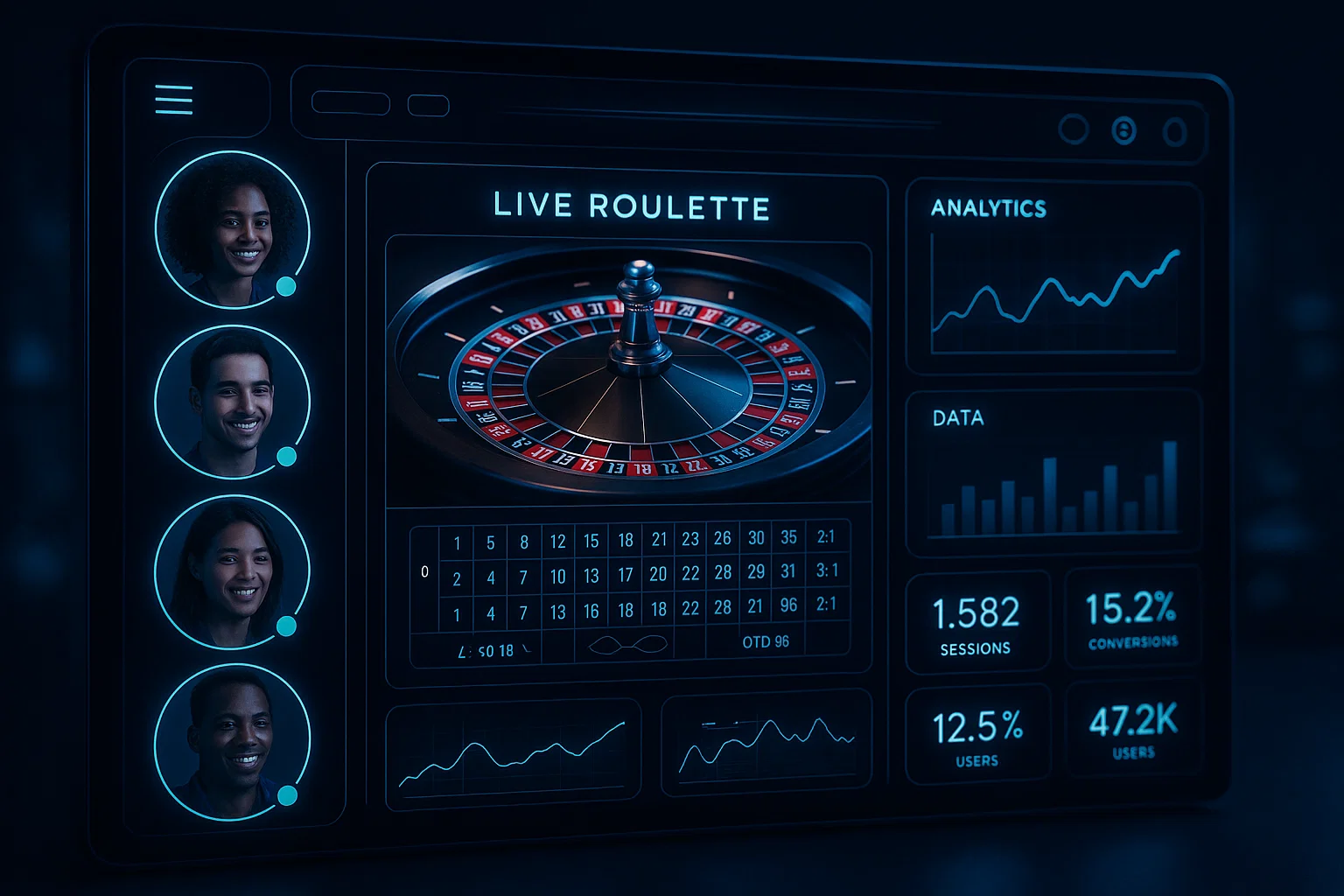The Gamified Future of Digital Marketing: What Roulette Platforms Can Teach Us in 2025
In 2025, digital marketing is no longer just about automation, personalization, or shifting to new channels. The most forward-thinking platforms are those that have mastered real-time engagement, emotional intelligence, and ethical transparency. Surprisingly, UK-licensed online roulette sites have become the testbed for tomorrow’s digital marketing strategies—pushing the boundaries of retention, behavioral UX, and conversion-focused regulation.
Gamification and AI: The New Engines of Engagement
Roulette platforms have elevated gamification to an art form. Every action—spin, deposit, hesitation—becomes a data point for engagement. In 2025, this is supercharged by artificial intelligence:
- Hyper-personalization: AI analyzes player behavior, preferences, and emotional states to deliver tailored bonuses, challenges, and content in real time.
- Dynamic content adaptation: The interface and offers morph instantly based on user mood, history, and even frustration levels.
- Predictive analytics: Platforms anticipate user needs—suggesting new games, bonuses, or even gentle nudges to take a break.
Beyond Gambling: These mechanics are now being adopted by e-commerce loyalty programs, educational apps, and even retail chains, proving that gamification is a universal growth driver.
Real-Time UX: Setting an Industry Benchmark

Roulette platforms operate in true real time:
- Live content: Real dealer streams and interactive chat create an immersive, communal experience.
- Instant feedback: Visual and audio cues—like glowing chips or shifting soundtracks—heighten emotional impact and reinforce user actions.
- Dynamic rewards: Personalized missions and bonuses appear based on activity, time of day, or even device type.
Cross-Industry Parallels: Fitness apps now offer real-time challenges and feedback. Livestream shopping events use similar mechanics to boost conversion and engagement.
Regulation-Driven UX: Ethics as a Competitive Advantage
Strict UK regulation has forced roulette platforms to lead in ethical and transparent design:
- Mandatory RTP (Return to Player) display
- Session time and loss tracking reminders
- Easy-to-set deposit limits and self-exclusion tools
- Transparent licensing and dispute resolution
No dark patterns, no manipulative traps—just honest, consent-first design. This approach builds trust and long-term loyalty, setting a new standard for all digital products.
Emotional and Psychological Design: Building Deeper Connections
Modern gamified platforms don’t just chase clicks—they address core psychological needs:
- Autonomy: Users choose their risk level, table type, and even the intensity of notifications.
- Belonging: Live chat, avatars, and community missions foster a sense of participation.
- Progress and achievement: Loyalty ladders, missions, and streaks celebrate every milestone.
For a deeper dive into the psychological hooks and statistical realities behind user behavior, see our breakdown in Can You Really Win at Online Roulette in the UK? Math, Myths and Mind Games.
Application: Educational platforms like language apps and retail loyalty programs are now integrating similar mechanics to drive habit formation and emotional engagement.
AI-Driven Personalization and Adaptive Experiences
AI is transforming how platforms interact with users:
- Session-based personalization: Offers and content adapt not just to CRM data, but to real-time behavior and mood.
- Emotional feedback: Sounds, animations, and even micro-interactions from live hosts adjust dynamically to user actions.
- Adaptive difficulty: Users can toggle between “discovery” and “focus” modes, or select risk levels—mirroring the flexibility of roulette tables.
Concrete Metrics and Business Impact

Gamification isn’t just a buzzword—it delivers tangible results:
- Increased LTV: Platforms report up to 2x growth in customer lifetime value after implementing personalized missions and dynamic rewards.
- Higher engagement: Real-time feedback and live content can double session times and boost repeat visits.
- Improved retention: Ethical, transparent UX reduces churn and builds lasting trust.
Live Content and Hybrid Experiences: The Next Frontier
Live dealer roulette is a blueprint for interactive content:
- Real-time streaming, moderated chat, and human hosts
- Custom avatars, emojis, and tipping
- Loyalty missions and community challenges
Emerging Trends: Hybrid formats are on the rise—AR-compatible tables, virtual reality lobbies, and in-game brand integrations are blurring the lines between entertainment, shopping, and education.
What’s Next for Gamified Marketing?
- Behavior-aware bonus timing: Platforms will automatically pause or adjust rewards if overuse is detected, prioritizing user well-being.
- AI-powered recommendations: Not just suggesting games, but matching users with dealers or content based on nuanced behavioral profiles.
- Hybrid and immersive experiences: Expect AR/VR, mini-apps, and cross-platform missions that connect online and offline worlds.
Case Study Table: What Roulette Platforms Do Better Than Most Marketers
| Marketing Function | Roulette Platform Example |
| A/B Testing | Testing multiple dealer intros and bonus screens weekly |
| Personalization | Lobbies and offers adapt to session history |
| Ethical UX | RTP display, session timers, deposit limit prompts |
| Micro-feedback | Sound and visuals change with win/loss streaks |
| Loyalty Gamification | Spin wheels, VIP ladders, themed missions |
| Real-Time Content | Live dealers, chat, interactive bonuses |
UK roulette platforms today exemplify how the future of digital marketing is being shaped—not just through advanced technology, but through a thoughtful balance of real-time personalization, ethical transparency, and engaging gamification. Their approach demonstrates that trust, openness, and emotional intelligence can go hand in hand with strong user retention and business growth. By looking at how these platforms operate, marketers across industries can find practical inspiration for building more responsive, user-focused, and innovative digital experiences.
